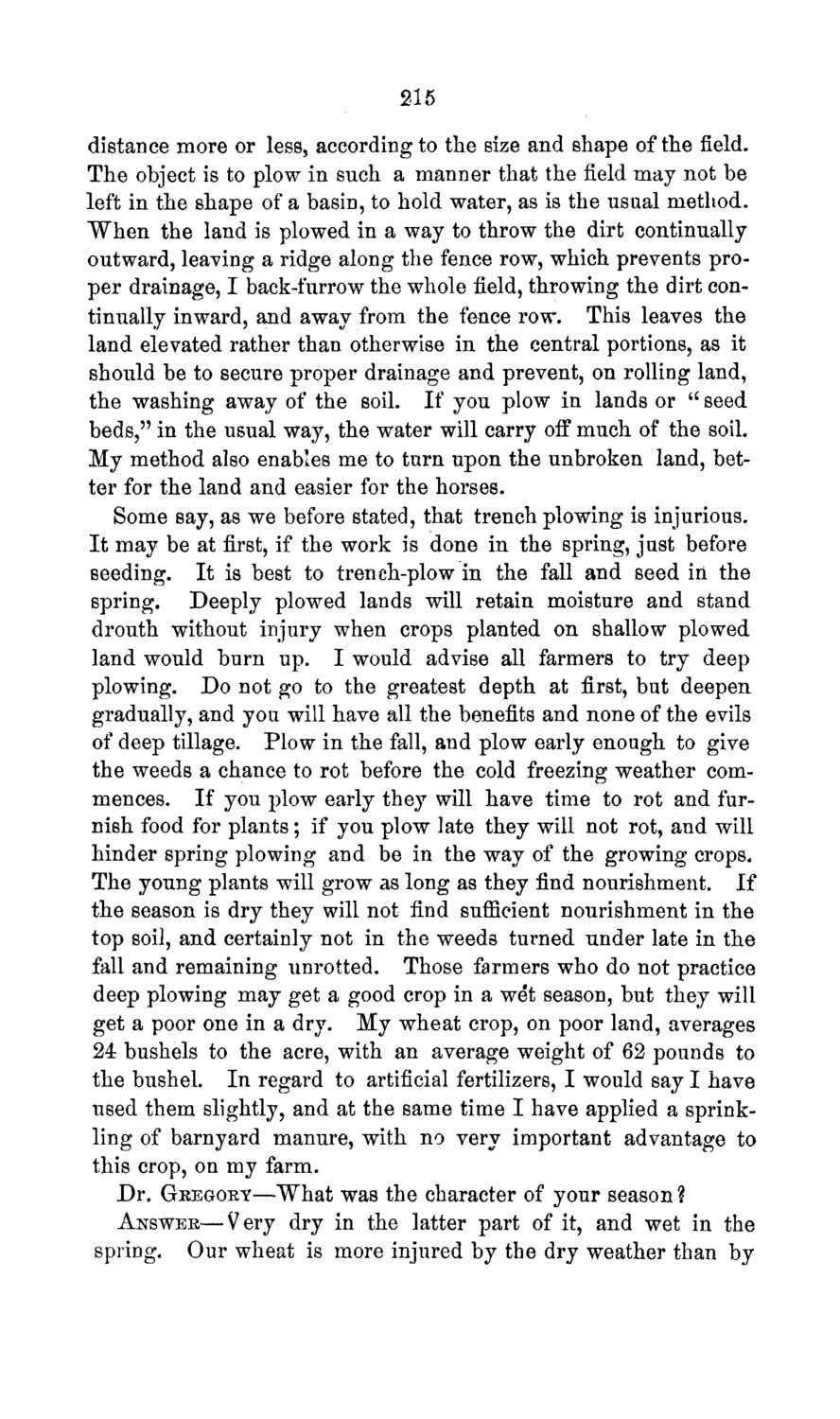| |
| |
Caption: Board of Trustees Minutes - 1869
This is a reduced-resolution page image for fast online browsing.

EXTRACTED TEXT FROM PAGE:
215 distance more or less, according to the size and shape of the field. The object is to plow in such a manner that the field may not be left in the shape of a basin, to hold water, as is the usual method. "When the land is plowed in a way to throw the dirt continually outward, leaving a ridge along the fence row, which prevents proper drainage, I back-furrow the whole field, throwing the dirt continually inward, and away from the fence row. This leaves the land elevated rather than otherwise in the central portions, as it should be to secure proper drainage and prevent, on rolling land, the washing away of the soil. If you plow in lands or " seed beds," in the usual way, the water will carry off much of the soil. My method also enables me to turn upon the unbroken land, better for the land and easier for the horses. Some say, as we before stated, that trench plowing is injurious. It may be at first, if the work is done in the spring, just before seeding. It is best to trench-plow in the fall and seed in the spring. Deeply plowed lands will retain moisture and stand drouth without injury when crops planted on shallow plowed land would burn up. I would advise all farmers to try deep plowing. Do not go to the greatest depth at first, but deepen gradually, and you will have all the benefits and none of the evils of deep tillage. Plow in the fall, and plow early enough to give the weeds a chance to rot before the cold freezing weather commences. If you plow early they will have time to rot and furnish food for plants; if you plow late they will not rot, and will hinder spring plowing and be in the way of the growing crops. The young plants will grow as long as they find nourishment. If the season is dry they will not find sufficient nourishment in the top soil, and certainly not in the weeds turned under late in the fall and remaining unrotted. Those farmers who do not practice deep plowing may get a good crop in a wet season, but they will get a poor one in a dry. My wheat crop, on poor land, averages 24 bushels to the acre, with an average weight of 62 pounds to the bushel. In regard to artificial fertilizers, I would say I have used them slightly, and at the same time I have applied a sprinkling of barnyard manure, with no very important advantage to this crop, on my farm. Dr. GREGORY—What was the character of your season ? ANSWER—Very dry in the latter part of it, and wet in the spring. Our wheat is more injured by the dry weather than by
| |